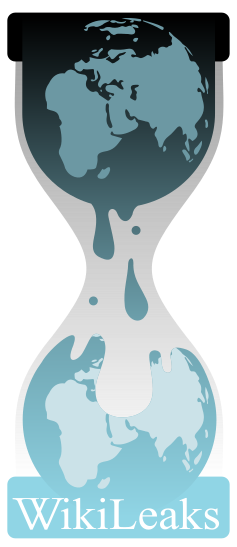The 1971 Supreme Court on WikiLeaks
By Kristopher A. Nelson
in
December 2010
700 words / 4 min.
Tweet
Share
In a 1971 case, New York Times Co. v. United States, 403 US 713, the Supreme Court ruled against an attempt by the Nixon Administration “to enjoin the New York Times and the Washington Post from publishing the contents of a classified study entitled ‘History of U. S. Decision-Making Process on Viet Nam Policy.
Please note that this post is from 2010. Evaluate with care and in light of later events.

I am sympathetic to arguments that WikiLeaks has published information detrimental to United States interests, and that the publication of various diplomatic cables has made the job of the Department of State more difficult. Additionally, I am concerned that WikiLeaks does not have the same vested interest in the responsible evaluation, redaction, and publication of sensitive data as a traditional media outlet like the New York Times. Thus, for example, the recent release of “sensitive facilities” seems to have limited benefit, but potentially increases risks for these (non-military, often non-governmental) locations.
Despite this concern, I was struck by the applicability of the words of the United States Supreme Court to the publication of the so-called “Pentagon Papers” in 1971.
In that 1971 case, New York Times Co. v. United States, 403 US 713, the Court ruled against an attempt by the Nixon Administration “to enjoin the New York Times and the Washington Post from publishing the contents of a classified study entitled ‘History of U. S. Decision-Making Process on Viet Nam Policy.”
“Any system of prior restraints of expression comes to this Court bearing a heavy presumption against its constitutional validity.” Bantam Books, Inc. v. Sullivan, 372 U. S. 58, 70 (1963); see also Near v. Minnesota, 283 U. S. 697 (1931). The Government “thus carries a heavy burden of showing justification for the imposition of such a restraint.” Organization for a Better Austin v. Keefe, 402 U. S. 415, 419 (1971).
In his concurrence, Justice Black wrote:
The Government’s power to censor the press was abolished so that the press would remain forever free to censure the Government. The press was protected so that it could bare the secrets of government and inform the people. Only a free and unrestrained press can effectively expose deception in government. … In other words, we are asked to hold that despite the First Amendment‘s emphatic command, the Executive Branch, the Congress, and the Judiciary can make laws enjoining publication of current news and abridging freedom of the press in the name of “national security.” … The word “security” is a broad, vague generality whose contours should not be invoked to abrogate the fundamental law embodied in the First Amendment. The guarding of military and diplomatic secrets at the expense of informed representative government provides no real security for our Republic.
Justice Douglas added:
It should be noted at the outset that the First Amendment provides that “Congress shall make no law . . . abridging the freedom of speech, or of the press.” That leaves, in my view, no room for governmental restraint on the press. … The dominant purpose of the First Amendment was to prohibit the widespread practice of governmental suppression of embarrassing information. It is common knowledge that the First Amendment was adopted against the widespread use of the common law of seditious libel to punish the dissemination of material that is embarrassing to the powers-that-be. See T. Emerson, The System of Freedom of Expression, c. V (1970); Z. Chafee, Free Speech in the United States, c. XIII (1941). … Secrecy in government is fundamentally anti-democratic, perpetuating bureaucratic errors. Open debate and discussion of public issues are vital to our national health. On public questions, there should be “uninhibited, robust, and wide-open” debate. New York Times Co. v. Sullivan, 376 U. S. 254, 269-270.
Not every Justice agreed, but protecting the right to publish, despite government claims of national security, prevailed.
While the circumstances of WikiLeaks’ publications in 2010 are not the same as that involving the New York Times in 1971, I am nonetheless struck by the similarities. Beyond WikiLeaks status as a non-traditional news publisher, why is this any different from publishing the Pentagon Papers? Are the national security concerns greater? Is the risk to the United States higher? Is the damage higher? I’m still trying to decide.